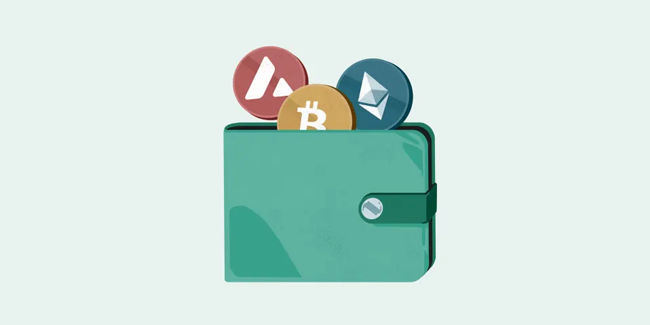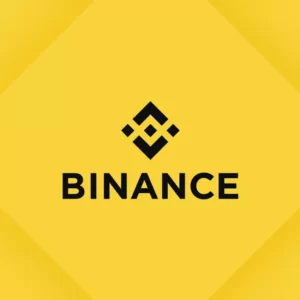Don’t know where to begin when it comes to purchasing Bitcoins? You’ve arrived at the correct location. You’ll learn all you need to know about buying Bitcoin safely and swiftly by the conclusion of this article.

How to Buy Bitcoin?
Here’s a step-by-step guide to purchasing your first Bitcoin:
- Get a Bitcoin wallet first.
- Search for your Bitcoin address.
- Decide how much Bitcoin you want to buy.
You’ll be taken to Binance, where you may input your expected amount in fiat currency by choosing the appropriate fiat currency.
Within minutes, the Bitcoins will be delivered to your wallet. If Binance isn’t for you, here are some more reliable alternatives:
How, When, and Where Should You Buy Bitcoin?
A Step-by-Step Guide
One of the most frequent inquiries I get is, “Is this the time to buy Bitcoin?”
The difficulty is that there is no clear answer to this question, and it all depends on why you’re buying Bitcoin.
If you want to trade Bitcoins (buy low and sell high) for a quick profit, you’ll need to familiarise yourself with various Bitcoin trading tactics and try to time the market.
If, on the other hand, you’re interested in Bitcoin for its technology and feel it has a promising future, you have two options to purchase Bitcoins :
Averaging of Dollar Costs (also known as DCA)
DCA implies that you purchase Bitcoins at a predetermined price on a fixed date on a regular basis, regardless of the price. You are averaging out the changes in the currency rate in this manner.
Regardless of price, the purchase
Long-term supporters say that it makes little difference whether you buy today or when the price is $100 or even $1000 cheaper. In the long run, the price will rise, making these distinctions insignificant.
Whether you’re just getting started, I recommend starting with DCA since it will help you get into the process more easily and then determine if you want to adjust your strategy.
Where Can I Buy Bitcoin?
Choosing a Bitcoin exchange is a bit hard task. Each exchange has its own set of regulations, allowed payment methods, and fees, as well as other considerations. Here are some things to keep an eye out for if you wish to perform your own research.
- Supported countries — Not all exchanges welcome consumers from all around the world.
- Accepted payment methods — Some exchanges offer a wide range of payment methods, while others solely accept wire transfers.
- Fees are classified into four types: deposit costs, transaction fees, withdrawal fees, and Bitcoin network fees. Each one is unique and might have an impact on the total amount of money you earn.
- Exchange rate – Exchange rates vary depending on the exchange (which leaves room for arbitrage). The actual price you’ll pay is determined by the mix of the exchange rate and fees. Some exchanges, for example, offer modest fees but a relatively high exchange rate, making them unappealing options.
- Limits on purchases – Your purchase limit will be determined by your payment method and an identity verification process. Some exchanges will not enable you to acquire a significant quantity of bitcoins owing to their buying restrictions.
- Exchange reputation – Before depositing money at an exchange, you should ask yourself, “How respectable is this exchange?” How good is the help if you get lost in the process? Is there a big number of complaints about the exchange?
Types of Exchanges
To assist you in finding the best exchange, we must distinguish between brokers, trading platforms, and peer-to-peer platforms.
1. Brokers
- Brokers are websites that allow you to acquire coins through their platform at a predetermined price specified by the platform. Brokers are the most common sort of exchange, despite being more expensive than other types of exchanges.
Broker examples include Coinbase.
- Brokers are websites that allow you to acquire coins through their platform at a predetermined price specified by the platform. Brokers are the most common sort of exchange, despite being more expensive than other types of exchanges.
2. Trading Platforms
- Simply said, trading platforms connect buyers and sellers in an indirect manner. Sellers issue sell orders, which are picked up by purchasers, with no direct contact between the two parties. The platform charges a minimal fee to provide the service.
- Trading platforms, such as Binance, Bybit, Bitget, Phemex, Gate.io, or Mexc. to name a few, are typically the cheapest option to purchase bitcoins.
- For one thing, order fulfillment is contingent on locating sellers willing to meet your quoted price, which may take some time. Furthermore, certain platforms, such as Delta Exchange, provide complex trading options like stop losses or limit orders, which may be confusing to novice traders.
3. P2P Platforms
- Platforms for peer-to-peer transactions P2P systems, as opposed to trading platforms, allow buyers to contact directly sellers and vice versa. Because of this direct connection, the two parties are able to negotiate the price.
- However, because you are effectively giving money to an unidentified merchant, this direct connection is fraught with danger. On the plus side, P2P systems typically provide advantages such as availability in many countries, additional payment options, and so on. A few well-known peer-to-peer trading platforms are Remitano, Binance, Bybit, Bitget, Phemex, Gate.io, and Mexc.

